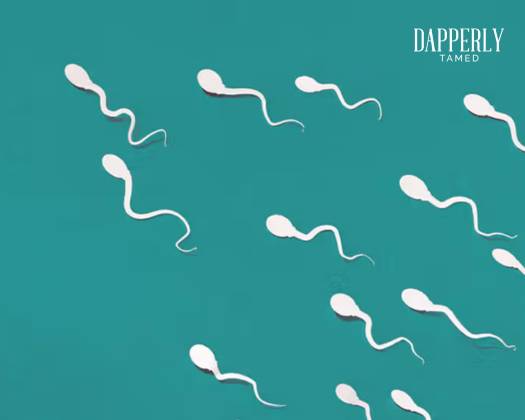Understanding Male Infertility: Causes of Low Sperm Count and Ways to Improve Sperm Health
Male infertility, a prevalent concern affecting approximately 30% of cases, often stems from issues related to low sperm count, termed oligospermia, or a complete absence of sperm, known as azoospermia. Health experts shed light on the factors impacting sperm quality and offer valuable suggestions to enhance sperm count and boost male fertility.
Causes of Low Sperm Count:
Dr. Manu Gupta, a distinguished Senior Consultant in Urology and Andrology, highlights various factors contributing to low sperm count. Lifestyle choices, including smoking, excessive alcohol consumption, drug use, and poor dietary habits, significantly impact sperm quality. Additionally, medical conditions such as infections, hormonal imbalances, and genetic disorders like Klinefelter syndrome can hinder sperm production.
Dr. Giriraja Velayutham, an esteemed Consultant Urologist, identifies key causes of low sperm count, emphasizing lifestyle factors, medical conditions, and environmental influences. Varicocele, a swelling of testicular veins, emerges as a reversible cause of male infertility, while exposure to environmental toxins, heat, and medication overdose can also compromise sperm production.
Tips to Improve Sperm Health:
Dr. Manu Gupta offers actionable recommendations to bolster sperm count and enhance male fertility. Lifestyle changes, including quitting smoking, limiting alcohol intake, and abstaining from drug use, significantly benefit sperm quality. Avoiding prolonged exposure to heat from hot baths, saunas, and laptops ensures optimal testicular temperature for healthy sperm production. Moderation in exercise and avoiding excessively tight clothing are also advised to maintain ideal conditions for sperm development.
Dr. Giriraja Velayutham underscores the role of diet and exercise in fostering sperm health. A balanced diet rich in vitamins, antioxidants, and minerals, encompassing fruits, vegetables, whole grains, and nuts, positively impacts sperm quality. Regular physical activity not only promotes a healthy weight but also contributes to overall reproductive health.
Moreover, minimizing exposure to toxins, managing stress through relaxation techniques like meditation or yoga, seeking medical treatment for underlying conditions, and adopting lifestyle adjustments such as wearing loose-fitting underwear and avoiding prolonged heat exposure contribute significantly to maintaining optimal sperm health.
Seeking Medical Assistance:
Both experts stress the importance of seeking medical guidance if low sperm counts persist despite lifestyle changes. Dr. Gupta emphasizes the necessity of consulting fertility specialists and andrologists to diagnose and address underlying medical causes. Advanced medical procedures like Micro Dissection Testicular Sperm Extraction (Micro TESE), Testicular Sperm Aspiration (TESA), and Percutaneous Epididymal Sperm Aspiration (PESA) provide viable options for couples seeking fertility treatment.
Dr. Velayutham highlights the need for medical evaluation to address hormonal imbalances and other underlying medical conditions contributing to low sperm count.
Conclusion:
In conclusion, while lifestyle modifications play a crucial role in improving sperm health, seeking professional medical advice remains paramount for comprehensive evaluation and tailored treatments to address male infertility issues.








